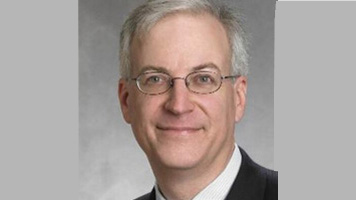Jessell | Let’s Make The Partial FCC Shutdown Permanent

Eventually, Congress or the White House is going to cave and the FCC will be back to its old self. That’s too bad. Wouldn’t it be nice if the shutdown of some pointless and counterproductive broadcast regulations were permanent?
The cable association urges the FCC not to act on raising the 39% ownership cap before knowing how much such an action could increase cable rates. ACA wants the commission to consult with the new Office of Economics and Analytics and seek an econometric analysis
Free Press and other groups challenge what they call the FCC’s dramatic reversal of media-ownership limits that pave way for media mergers, including Sinclair-Tribune.
The attorneys general say that the FCC lacks authority to raise the nominal 39% cap, but it does have the power to eliminate the UHF discount and it should exercise that power to prevent all stations groups from exceeding 39%. “[L]ifting or eliminating the national audience reach limit threatens diversity, competition, and localism,” they say.
FCC Chairman Ajit Pai circulates a draft of a rulemaking to consider retaining, modifying or eliminating the cap that, with the restoration of the UHF discount earlier this year, now enables TV station groups to reach as many as 78% of TV homes. A vote on the proposal is set for Dec. 14.
In response to the FCC’s Sept. 14 request for “specific plans” on how it intends to comply with ownership limits, Sinclair said in a late filing today it would be “premature” to set forth any plans given the DOJs concurrent review of the deal and the possibility the FCC may relax the limits.
Holy Moses! Ancient FCC Regs Aren’t Sacred
 Gray Television exec Kevin Latek’s background is in communications law and he thinks the current FCC needs to update the commission’s ownership rules to reflect the reality of today’s TV ecosystem, not that of the 1950s or even the 1990s.
Gray Television exec Kevin Latek’s background is in communications law and he thinks the current FCC needs to update the commission’s ownership rules to reflect the reality of today’s TV ecosystem, not that of the 1950s or even the 1990s.
FCC Turns Sights To Local Station Ownership
After loosening national ownership regulations, expectations are high that the FCC will move to allow two stations in every market regardless of whether or not they are network affiliates. Under one scenario, action could come as early as this summer.
The commission asks a federal appeals court to reject a call to block the FCC’s restoration the UHF discount, which increased the national coverage cap on station groups to as much as 78%.
Several advocacy groups led by Free Press have petitioned the federal appeals court in Washington for an emergency stay of the FCC April decision to relax the national ownership cap. The FCC action “undermines the public interest goals of diversity, competition and localism,” the group say. The FCC has until Thursday to reply to the motion.
In a joint filing to the FCC,Free Press, United Church of Christ, Prometheus Radio Project, Media Mobilizing Project, Media Alliance, National Hispanic Media Coalition and Common Cause say the commission’s plan “lacks any legal or policy support and effectively contravenes the statutory limit on national television ownership.”
A vote by the FCC last week sets the stage for the consolidation of local television stations in a deal-making frenzy. For TV station groups in particular — including Sinclair, Fox and the Nexstar Media Group — owning more stations increases their power over cable companies, which pay to retransmit the stations.
Sizing Up Broadcasting’s New World Order

FCC Chairman Ajit Pai says he wants to restore the national ownership cap’s UHF discount at the FCC’s April 20 meeting and he has the votes to do it. After that, he says in a blog post, “we’ll launch a comprehensive review of the national ownership cap … later this year.” Effect of restoring the discount would be to double the current limit to 78% of TV homes.
The Wall Street Journal reports that FCC Chairman Ajit Pai will today announce plans to loosen the national cap on TV station ownership at an FCC meeting in late April by restoring the UHF discount. The cap now limits stations to a reach of no more than 39% of TV homes. Restoration of the discount, which would allow groups like CBS and Sinclair to exceed 65%, is expected to touch off another round of station consolidation. Journal subscribers can read the full story here.
Sinclair, Nexstar Show How Big Can Be Better

FCC Ownership Comment Dates To Be Set
Tomorrow, Dec. 30, the petitions for reconsideration of the FCC’s multiple ownership decision is scheduled to be published in the Federal Register. This will start the clock on comments on those petitions. If publication occurs as scheduled, comments will be due on Tuesday, Jan.17 and replies on Friday, Jan. 27.
Clock Starts On UHF Discount Comments
While several parties went to court to challenge the FCC’s decision ending the UHF discount, one broadcaster decided instead to ask for reconsideration. That petition for reconsideration has now been published in the Federal Register, giving interested parties until Dec. 27 to comment, and other parties until Jan. 6 to reply to any comments filed. This reconsideration petition may give a new Republican-led FCC its first opportunity to revisit the FCC’s multiple ownership rules which have been the subject of several petitions for reconsideration.
The traded group says the commission’s decisions retaining, and even making more stringent, “unnecessary local TV station ownership and attribution rules and crossownership restrictions on local radio, TV and print newspapers do not serve the public’s interest in competitive and vibrant local broadcasting, fail to reflect competitive changes, are contrary to statute, and are arbitrary and capricious.”
“[We] do think there is more upside potential to the stocks and multiples; we do think there are more positive than negative revisions to core ad estimates (although we caveat it is still very early); we do expect a change to the 39% cap (and other ownership rules); and we do anticipate the station groups to be included in the streaming packages … eventually,” Marci Ryvicker’s team at Wells Fargo says in a note to investors today.
In changing of the guards at the White House, the local TV industry sees an opportunity in their ongoing quest to toss out the FCC’s rules on media crossownership that bar media companies from owning newspapers and TV stations in the same market.
The FCC is likely to change course and prioritize lifting newspaper and TV station ownership restrictions when it comes under Republican control in 2017, agency watchers say. Industry analysts who track the FCC expect Republicans to relax rules once they assume control of the agency in President-elect Donald Trump’s administration.
The News Media Alliance says the commission’s decision to retain its broadcast-newspaper ownership ban “makes no sense at all.”
FCC’s Ownership Rules Remain Stuck In 1975
Jerianne Timmerman, NAB senior deputy general counsel: During the past year, a number of industry trade associations have changed their long-standing names to reflect changes in their members and industries. Notably, however, the FCC’s broadcast ownership rules reflect none of these fundamental changes.
No Matter How You Slice it, Pai Is Right

House Judiciary Committee Chairman Bob Goodlatte (R-Va.) on Thursday tore into the FCC’s just-released updated media ownership rules that retained the ban on newspaper-broadcast crossownership. In a statement, Goodlatte said the FCC had “overreacted” and that it was “likely to harm the objectives of smaller media outlets eager to compete.”
This afternoon, the FCC released its order on the Quadrennial Review of its multiple ownership rules, which was reported two weeks ago. The order reinstates the television joint sales agreement attribution rule, adopts new filing requirement for shared service agreements and says the FCC will grant waivers to the newspaper-broadcast crossownership ban on a case-by-case basis.
The FCC on Wednesday voted to retain nearly all rules limiting crossownership of newspapers, radio and TV stations in the same market. The decision is a blow to struggling newspaper companies that have long pushed for the FCC to relax the restrictions. An NAB statement said: “The FCC’s greatest accomplishment with its latest order is to further hasten the great decline of our nation’s newspapers and the quality of journalism as a whole.”
The FCC’s Democratic majority has voted to preserve TV and radio station ownership restrictions, including a ban on owning both a daily newspaper and a nearby broadcast station, according to people familiar with the vote.
Crossownership Ban Doesn’t Reflect Reality

The trade group objects to FCC Chairman Tom Wheeler’s proposal to keep the 41-year-old ban, saying It is now “outdated, and the very notion of a rule hinging on a newspaper being printed and circulated shows its age and inherent arbitrariness.”
The trade group files a Freedom of Information request for documents the commission used in formulating its proposed revision of the ownership rules.
Borrowing from the energy industry, the Multicultural Media,Telecom and Internet Council proposes that the FCC issue diversity credits to “small disadvantaged businesses” and to station groups that do deals that increase diversity. The credits could be bought and sold. Groups in deals that lessen diversity could buy credits they need to win FCC approval.
The association tells the FCC that it’s obligated to overhaul its station ownership rules. “Local television ownership combinations and shared services agreements are vital in today’s competitive marketplace to maintain stations’ financial viability.”
It also sharply criticizes the commission for failing to complete the last two mandated reviews of its rules, with special attention paid to ownership regulations.
FCC Makes Changes To Ownership Reports
In a Report and Order that has been in the making since at least 1998, the FCC on Wednesday adopted new ownership reporting forms for both commercial and noncommercial stations. Among them: Another alternative to obtaining a full Federal Registration Number (FRN), called the Restricted Use FRN (RUFRN), available only for use in filing ownership reports.
FCC Sets JSA Filing Deadline Of Nov. 28
Last spring, the FCC decided that certain TV joint sales agreements (JSAs) may create attributable interests for the purposes of determining compliance with the multiple ownership rules. And, thanks to that change, JSAs that do create such interests have to be filed with the commission. The filing requirement is effective as of today, which means that copies of all existing TV JSAs that create attributable interests will have to be filed with the FCC within 30 days, i.e., by Nov. 28.
Wheeler On Wrong Side Of Regulatory History

FCC Puts Kibosh On New JSA Deals
The new rule bans new joint sales agreements in which one station sells 15% or more of the advertising time of another separately owned station in the same market. In addition, most existing JSAs will expire within two years unless the commission grants an exemption.









































